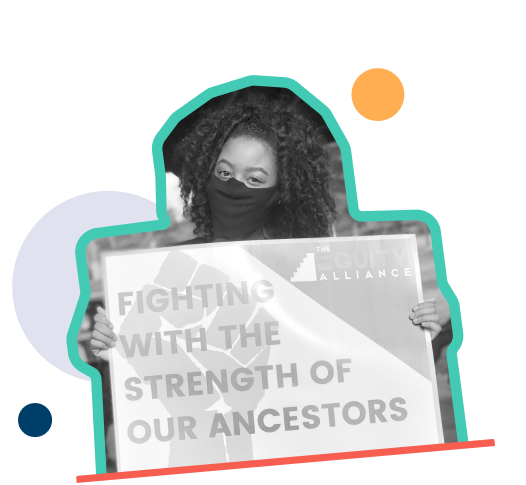As part of Neighborhood Funders Group’s virtual convening series, NFG’s Integrated Rural Strategies Group (IRSG) will host its first ever Multiracial Rural Equity Summit on July 1.
As Americans across the country rise up in the aftermath of George Floyd’s murder, IRSG calls on philanthropy to:
-
Uplift the voices of rural communities demanding economic and environmental justice.
-
Uplift the voices of Black, Indigenous and people of color in rural places.
-
Uplift racial solidarity and shared prosperity.
IRSG’s Multiracial Rural Equity Summit will explore how systemic racism is harming rural communities and how grantmakers can support building rural resilience in the future. Funders will gather virtually to learn from rural organizations that have a racial justice analysis.
Paralleling rural & urban divestment
Since the 1980s, rural areas throughout the U.S. have been decimated by globalization, automation, the opioid epidemic, population decrease related to the financialization of our economy, and more. Rural communities have suffered from divestment in social safety net systems and lack of access to healthcare, education, and quality jobs. A robust rural economy once populated by family famers has been replaced with corporate factory farms, resulting in loss of land and livelihood for farmers across the country and an ironic reality in which some of the most food insecure counties in the country are rural.
During the same time frame, the rural prison and detention center economy grew exponentially; prisons and detention centers have become a bedrock of employment for many rural communities with 70 percent of U.S. prisons located in rural areas. The U.S. maintains the world’s largest immigration detention system, and more than half of immigrants detained by U.S. Immigration and Customs Enforcement are housed in remote rural prisons.
Comparing farmer and prisoner populations, data shows that there are currently more prisoners than farmers in the U.S. Today, many states are now leasing out prisoners to support corporate agriculture and other industries based in rural areas, a practice tragically reminiscent of “convict leasing” adopted by former slaveholders during the Jim Crow era. In order to justify such a massive expansion, the prison industrial complex amplified a narrative that cast Black and Latinx people of color as “dangerous,” marketing it to predominantly white rural communities as an appeal to personal and economic security.
People of color in urban areas have experienced similar divestments that parallel those of rural communities. Decades of racialized divestment in housing, healthcare, and education have re-segregated cities, declined living standards, accelerated health disparities, and criminalized Black and brown communities across the country. In striking fashion, we can see that both rural and urban Black, Indigenous, and people of color communities are suffering from lack of access to healthy food, healthcare, education, quality jobs, and economies that are non-extractive of the local populations or the environment.
Climate change continues to be an existential threat to both rural and urban communities; it is devastating for farmers, and populations across the world are struggling to contain fires, droughts, storms, and the spread of diseases. The parallel experiences of disinvestment in rural and urban communities show that they have much to gain by standing together around a set of shared values.
The path forward and philanthropy’s role
This all points to the fact that the fates of rural and urban America are intimately intertwined. As the country reckons with its racial history and calls for racial justice proliferate mainstream politics, rural communities will play a vital role in shaping outcomes on all of the issues we care most about. Rural communities are vital to creating the systems we need to survive climate change. Ninety-seven percent of America’s land mass is rural and as climate change forces massive relocation, the composition of rural communities will continue to change and the need for multi-racial community solidarity will be paramount. The existence of strong, stable rural communities is a critical part of moving the needle toward the future we would like to see. The path forward requires divesting from prisons and other extractive industries in order to invest more in resilient ecosystems, racial solidarity, and multiracial economic development.
As a group of funders across the U.S. interested in pursuing this path forward, IRSG is providing opportunities to learn together and understand the role of systemic racism, economic injustice, and climate change in harming rural communities — and the role of grantmakers in building their resilience in the future. Philanthropy’s role requires an understanding and sustained investment in the communities that are doing this work.
This is why IRSG is hosting a Multiracial Rural Equity Summit. The summit will feature funders and rural community leaders who will speak about the historical and systemic divestment in rural communities and the importance of investing in a multiracial approach to resilience and prosperity.
Join us to learn, connect, and explore a path forward together.
The summit is co-sponsored by 11th Hour Project, Ceres Trust, Common Counsel Foundation, Engage New York, Meyer Memorial Trust, and NFG’s Democratizing Development Program.
